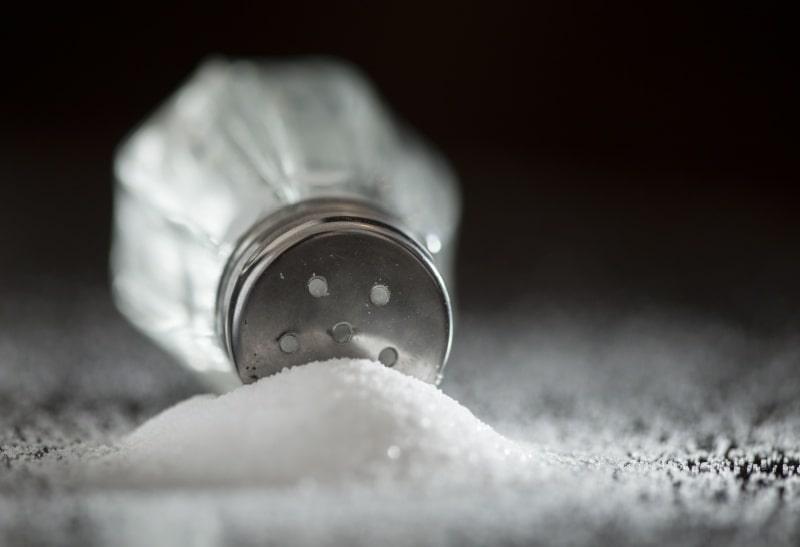In the United States, salt is more than just a seasoning; it's a staple in many diets, adding flavor and enhancing the taste of various dishes. However, what many Americans may not realize is that excessive salt consumption can have detrimental effects on their health, including their skin.
The Salty Stats

According to the Centers for Disease Control and Prevention (CDC), the average American consumes about 3,400 milligrams of sodium per day, well above the recommended limit of 2,300 milligrams per day for adults. Excess salt intake has been linked to various health issues, including high blood pressure, heart disease, stroke, and kidney problems. However, one often overlooked aspect of salt's impact is its effect on skin health.

Salt and Skin: The Connection
Your skin is the body's largest organ, and what you eat can significantly affect its appearance and health. Excessive salt intake can lead to dehydration, as salt draws water from your cells, leaving your skin dry and dull. Additionally, high salt consumption can exacerbate skin conditions such as acne, eczema, and psoriasis, as it can increase inflammation and disrupt the skin's natural balance.
High-Salt Culprits

Many common foods in the American diet are loaded with salt, often without consumers realizing it. Processed and packaged foods, such as canned soups, frozen meals, snacks, and condiments, tend to be particularly high in sodium. Even seemingly healthy options like bread, cheese, and salad dressings can contain unexpectedly high levels of salt.
Seasoning Alternatives
Reducing salt intake doesn't mean sacrificing flavor. There are plenty of delicious alternatives to salt that can add depth and complexity to your meals without the harmful effects. Here are some seasoning alternatives to consider:

- Herbs and Spices: Fresh or dried herbs and spices are excellent alternatives to salt. Experiment with a variety of flavors like basil, oregano, thyme, cumin, turmeric, and paprika to enhance your dishes.
- Citrus: Squeeze some lemon, lime, or orange juice over your food to add brightness and acidity without the need for salt.
-
Vinegar: Balsamic vinegar, apple cider vinegar, and rice vinegar can all provide a tangy flavor boost to your meals.

- Garlic and Onion: Fresh garlic and onion add depth and savory flavor to dishes without relying on salt.
- Homemade Sauces and Dressings: Instead of store-bought sauces and dressings, make your own using olive oil, vinegar, herbs, and spices.
The Skin Benefits of Reducing Salt
Cutting back on salt can lead to numerous benefits for your skin. By reducing dehydration, you can achieve a more youthful and radiant complexion. Lowering inflammation can help alleviate skin conditions like acne, eczema, and psoriasis, leading to clearer and healthier skin overall. Additionally, reducing salt intake can improve circulation, promoting better nutrient delivery to the skin cells and enhancing their vitality.

Excess salt in the American diet is not only harmful to overall health but can also negatively impact skin health. By being mindful of salt intake and opting for healthier seasoning alternatives, you can support clearer, more radiant skin.
Boost the benefits of reducing your sodium intake by adding Adonia Organics Plant Collagen Serums to your skincare routine. Tap into the 'Fountain of Youth' with our Day, Night, Neck/Chest and Body body serums filled with plant collagen cells that will help hydrate, lift and firm your skin. Our formulas are proven to boost natural collagen production quickly (even while you sleep)!

